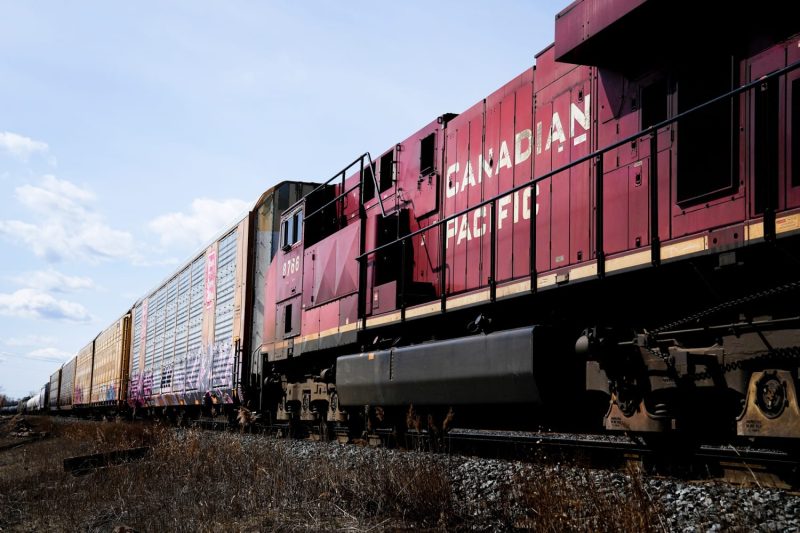The Upper Midwest United States could potentially experience grave inconveniences and profound disruptions in its supply chain due to an impending strike at two of Canada’s key rail networks. The Canadian Pacific Railway (CP) and the Canadian National Railway (CN), the nation’s largest freight rail carriers, are facing substantial labor disputes that could lead to work stoppages.
Canada’s railroads serve as a lifeline for multiple sectors of the U.S. economy, extending across the northern U.S. into states like Minnesota, Wisconsin, and North Dakota. A disruption to these rail services could strain the already fragile North American supply chain, escalating prices and creating scarcities in multiple areas.
The direct impact of a work stoppage would be felt acutely in various sectors. For the agriculture industry, delays in fertilizer deliveries could upset planting schedules and disrupt the entire crop cycle. This could lead to a spike in food prices, invariably being passed down to consumers.
The auto sector too, stands on shaky grounds. With railroads being the major transportation mode for finished vehicles and automotive parts between the two nations, a strike could further exacerbate the ongoing chip shortage crisis, slowing down production lines and resulting in long waiting periods for new automobiles.
Moreover, a railway shutdown could place an additional burden on trucking and other shipping modes. It would prompt a scramble for alternative transport, leading to increased freight rates that would again, descend onto the consumer’s pocket.
Aside from these direct implications, the impending strike also comes with peripheral economic concerns. It could drain local economies in states relying on rail services for economic activity, including freight handling and warehousing. The slowdown in these sectors may result in job losses and lower income levels.
Likewise, the energy sector, particularly oil and gas, would be hit hard by any service disruption, considering that a significant portion of Canada’s energy exports to the U.S. travels via rail. This could lead to an increase in energy prices and create vulnerabilities in the U.S. energy supply.
The fragility of the current global trade environment, rattled by the health crisis, puts the entire situation in an even more critical light. Canada’s robust rail network is a critical part of North America’s supply chain, moving a vast range of goods from food and cars to lumber and chemicals. The threat of a work stoppage adds another layer of uncertainty to a system already staggering under the weight of recent upheavals.
Union disputes and negotiation deadlocks have brought the two railroads to the brink of this potential stoppage. Authorities on both sides, therefore, need to work diligently to avert a strike. Swift resolution of labor disputes can help stay this pending disruption.
The looming crisis offers a grim reminder of the intricate network of dependencies that fabricates the global supply chain. The impending work stoppage at Canada’s two largest railroads reverberates beyond mere local borders, signaling a wake-up call to industries and leaders about the need for resilience in our global supply chains.




